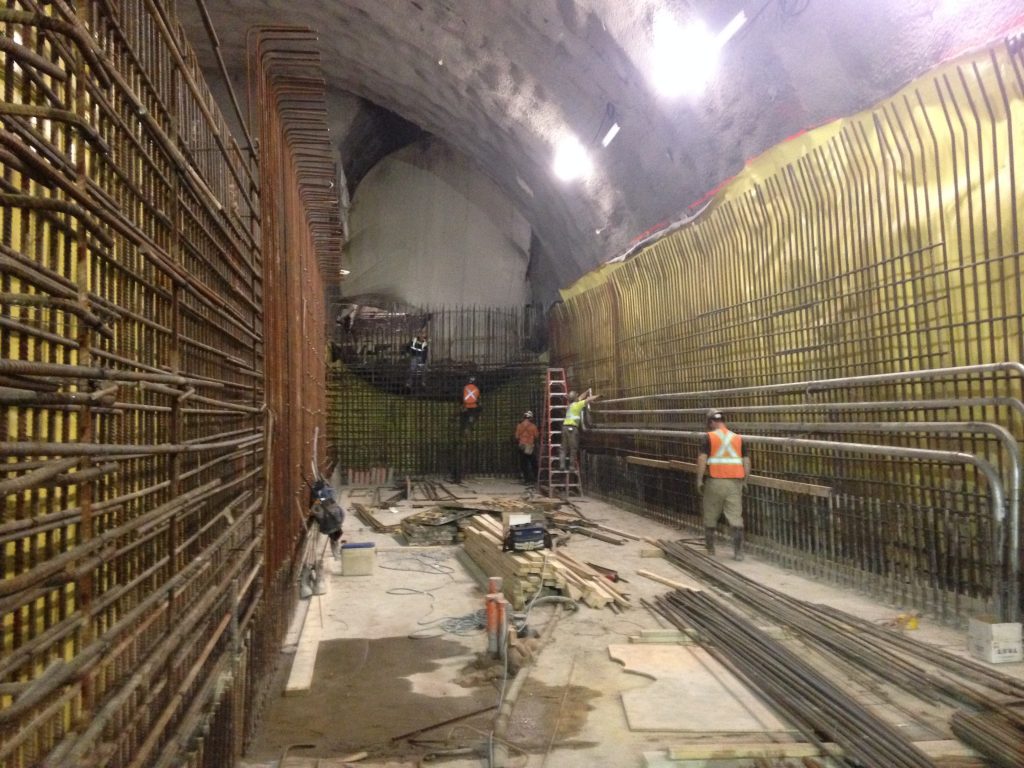Viewpoint: We need to know how LRT timeline was derailed
By Karen-Luz Sison
In news that’s no surprise to anyone, LRT trains will be pulling into stations later than expected. 
It’ll now be nine months until the projected completion of Phase 1 of the biggest infrastructure project in modern Ottawa’s history: the $2.1-billion east-west Confederation Line of the light-rail transit system.
And it’ll be eight months before Ottawa Mayor Jim Watson runs for another term in the October 2018 municipal election. The next few months of dealing with the LRT’s construction consortium, the Rideau Transit Group, may affect Watson’s chances at the polls.
Transparency around the handling of LRT construction will be crucial to curb growing frustration over the project among members of city council and the general public.
The LRT was meant to be open to the public by May 2018.
Originally, the RTG was to notify the city by Nov. 24 whether there would be delays — otherwise the city had the right to impose a $1-million penalty on the group.
The November deadline came and went and RTG mentioned only a possible risk of a delay — not a certainty. It was not until Dec. 15 that the consortium confirmed that it would not be able to make the May deadline.
It was, in the end, the ambiguity of the RTG’s November statement that, according to the city, gave the municipality a loophole to not impose the financial penalty it was entitled to.
In short, communication about the final deadline came off the rails.
Only Watson, John Manconi — the city’s general manager of transportation — and city manager Steve Kanellakos were fully informed of expected delays until recently.
The rest of city council and the public only found out on Feb. 6 — after the 2018 budget discussions were finalized and the budget itself was released — that the LRT would not be operational by May.
It’s ironic — perhaps astounding — that a delay in completing the priciest infrastructure in the city’s history was not clearly, thoroughly addressed in those budget discussions. Consequently, the city’s 2018 budget was based on the expectation that the LRT would be running by July 1.
With the latest bizarre twists in the LRT’s construction timeline, clarity (and the lack of it) from Watson about this issue should be an issue in his re-election campaign.
After years of touting the LRT project with breathless anticipation, casting it as a superbly managed project steaming towards completion on time and on budget, Watson has changed his tone and is now pushing a cautious message of “better safe than sorry” when it comes to LRT delays.
The new November 2017 deadline makes even the project’s once-ubiquitous tagline — “On Track for 2018” — a risky proposition.
A lot of citizens agree with the “better safe than sorry” statement, but when city councillors themselves express frustration about the lack of clarity around the delay, it’s clear Watson needs a new communication approach to the late arrival of the LRT.
Construction delays are blamed on the huge Rideau Street sinkhole that happened in 2016, but the details about other factors in the delays — and the unexpected costs that will follow, which could hit $10 million a month — are fuzzy.
Manconi has said the city will be monitoring the RTG’s progress carefully in the next few months to keep the rail line’s builder accountable. He has also mentioned that the additional costs — including the price of running many buses for much longer than expected — will be paid by the RTG.
While the RTG will be accountable to the City of Ottawa, the city government is accountable to its public. Accountability to the public isn’t possible unless there’s knowledge of what went wrong and how the fallout is being handled. And at the moment, there are too many LRT unknowns.
As with OC Transpo buses on snowy days, the public isn’t terribly surprised nor fully despairing that the LRT isn’t coming on time. But we deserve to know why.

